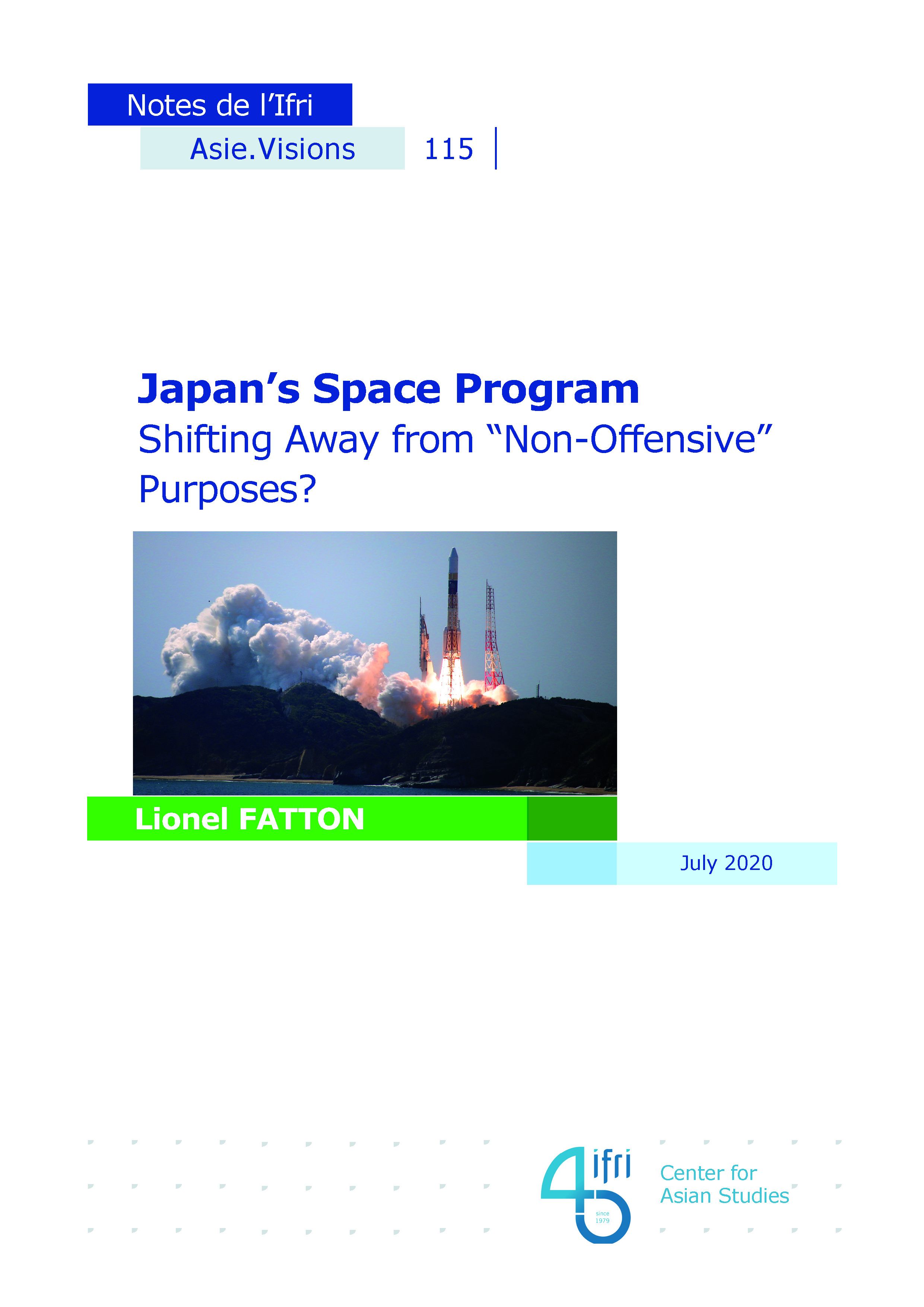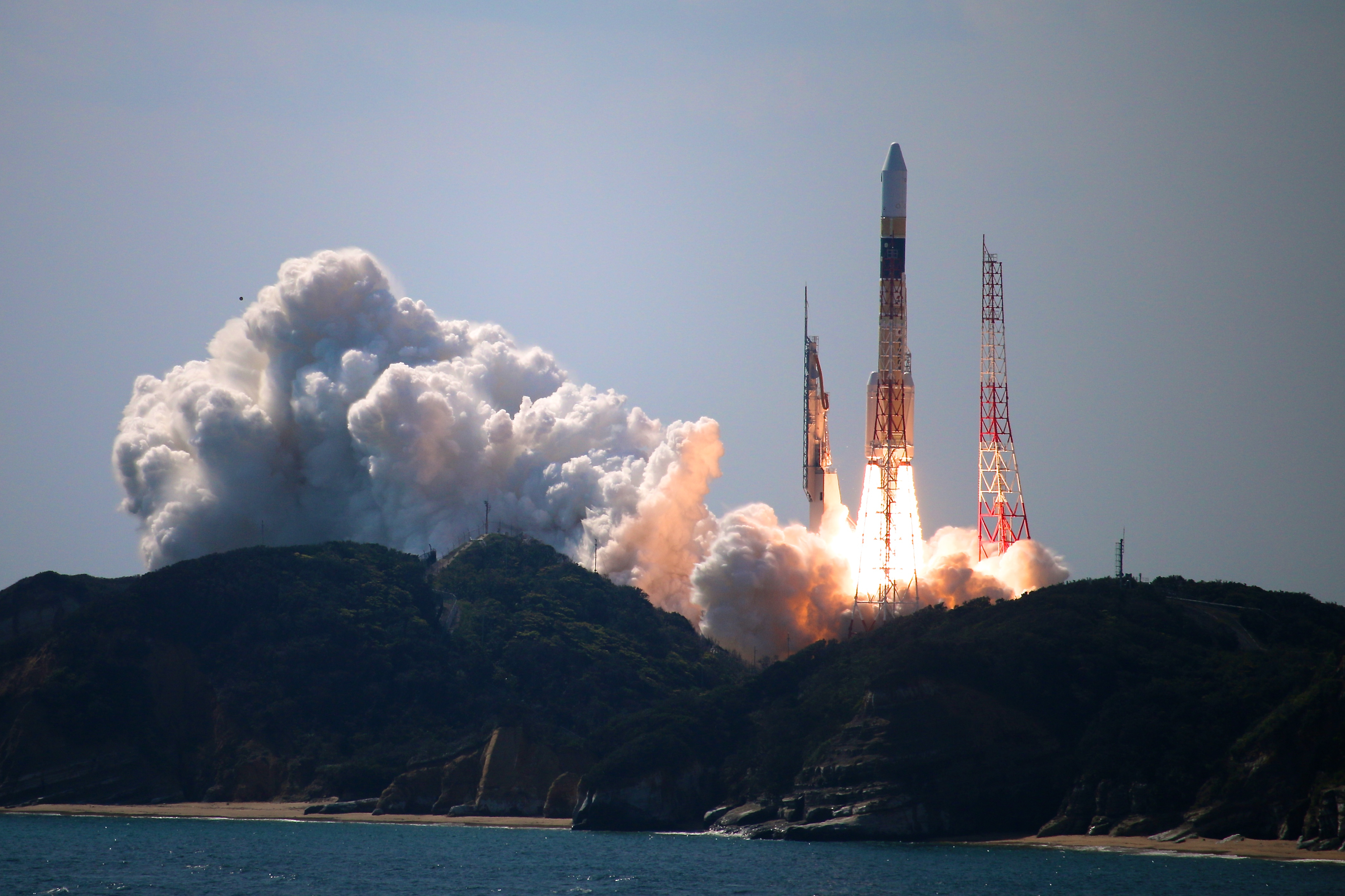Japan’s Space Program: Shifting Away from “Non-Offensive” Purposes?

Japan’s space program has evolved greatly since the end of the Cold War, driven by a rapidly changing geopolitical environment and tailored by the emergence of an “intra-alliance hedging strategy”.

Concerns about the United States’ readiness and ability to fulfill its security commitments have led Tokyo to enact security reforms to enhance its value as an ally while moving toward a more autonomous defense posture to prepare for the worst-case scenario of abandonment. This has transformed the Japanese space program from one based on the principle of peaceful use of space to a program aimed at ensuring national security through non-offensive means.
The security track of Japan’s space program currently aims at boosting the combat prowess of the Self-Defense Forces (SDF) in accordance with the non-offensive principle, and at maintaining in all circumstances the ability to use space-based assets for this purpose. Therefore, the country is not militarizing outer space beyond what is necessary to guarantee the proper functioning of the SDF.
Modern warfare puts a premium on intelligence and interoperability between different military elements. Information-gathering and maritime domain awareness devices, positioning services and military communications satellites provide Japan with better understanding of its environment, help anticipate and tackle threats, and allow greater interoperability between the SDF services. And, because national security increasingly depends on space operations, space situational awareness has taken prominence in Japan’s space program as a way to protect space assets against orbital debris and anti-satellite weapons.
Partly due to domestic legal, political and budget constraints, cooperation with international partners remains crucial for Japan to ensure national security and develop key space assets. With both the United States and India, Tokyo is collaborating on positioning services, maritime domain awareness and space situational awareness to help coordinate troop movements among allies, boost sea and ocean monitoring across the Asia-Pacific, and protect space-based assets. Japan has also partnered with European countries to jointly develop space technologies, pursue deep-space exploration, cooperate on positioning services, and set international norms for space activities.
Japan has yet to join the big three in the 21st century military space race. Compared to the United States, China and Russia, Japan is still inhibited by domestic constraints when it comes to military-related affairs, and thus the use of space for security purposes. But, although Japan’s space program is today almost purely non-offensive in nature, the intra-alliance hedging strategy implies a potential weaponization of space, beyond the non-offensive principle. This offensive use of space could materialize through the acquisition of strike capabilities, and the development of Japan’s own anti-satellite weapons or of active defense systems for space assets.
Whether Japan will follow this path depends on a variety of factors. On the domestic side, political stability will be decisive for the swift adaptation of Japan’s space program to its environment. Internationally, the evolution of the United States’ grand strategy and involvement in the Asia-Pacific will be the most influential factor. The more Tokyo doubts Washington’s ability and willingness to fulfill its security commitments, the more intense its intra-alliance hedging strategy becomes, further penetrating and transforming the Japanese space program.
Download the full analysis
This page contains only a summary of our work. If you would like to have access to all the information from our research on the subject, you can download the full version in PDF format.
Japan’s Space Program: Shifting Away from “Non-Offensive” Purposes?
Related centers and programs
Discover our other research centers and programsFind out more
Discover all our analysesThe U.S. Policy Toward Taiwan Beyond Donald Trump: Mapping the American Stakeholders of U.S.-Taiwan Relations
Donald Trump’s return to the White House reintroduced acute uncertainty into the security commitment of the United States (U.S.) to Taiwan. Unlike President Joe Biden, who repeatedly stated the determination to defend Taiwan, President Trump refrains from commenting on the hypothetical U.S. response in the context of a cross-Strait crisis.

China’s Strategy Toward Pacific Island countries: Countering Taiwan and Western Influence
Over the past decade, China has deployed a diplomatic strategy toward the Pacific Island Countries (PICs). This strategy pursues two main objectives: countering Taiwan's diplomatic influence in the region and countering the influence of liberal democracies in what Beijing refers to as the "Global South."

Opening up the G7 to South Korea to Address Contemporary Global Challenges
The G7’s global influence has diminished as powers like China reshape international governance through initiatives such as BRICS and the Shanghai Cooperation Organisation (SCO). With the G7 now representing just 10 per cent of the world’s population and 28 per cent of global GDP, its relevance is increasingly questioned.
Expanding SPDMM as a pivotal institution in the Pacific – A French perspective
The South Pacific Defence Ministers’ Meeting (SPDMM) is the only forum that brings together defense ministers from the wider South Pacific — including Chile, which is hosting it for the first time. This heterogeneous group of countries with varying resources, capacities, and interests — Australia, Chile, Fiji, France, New Zealand, Papua New Guinea (PNG), and Tonga — are united by their shared determination to strengthen cooperation on maritime security and humanitarian assistance and disaster relief (HADR) activities.









